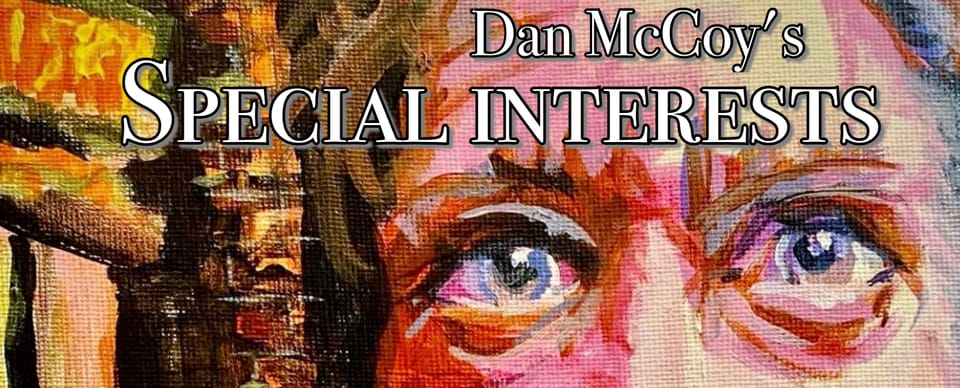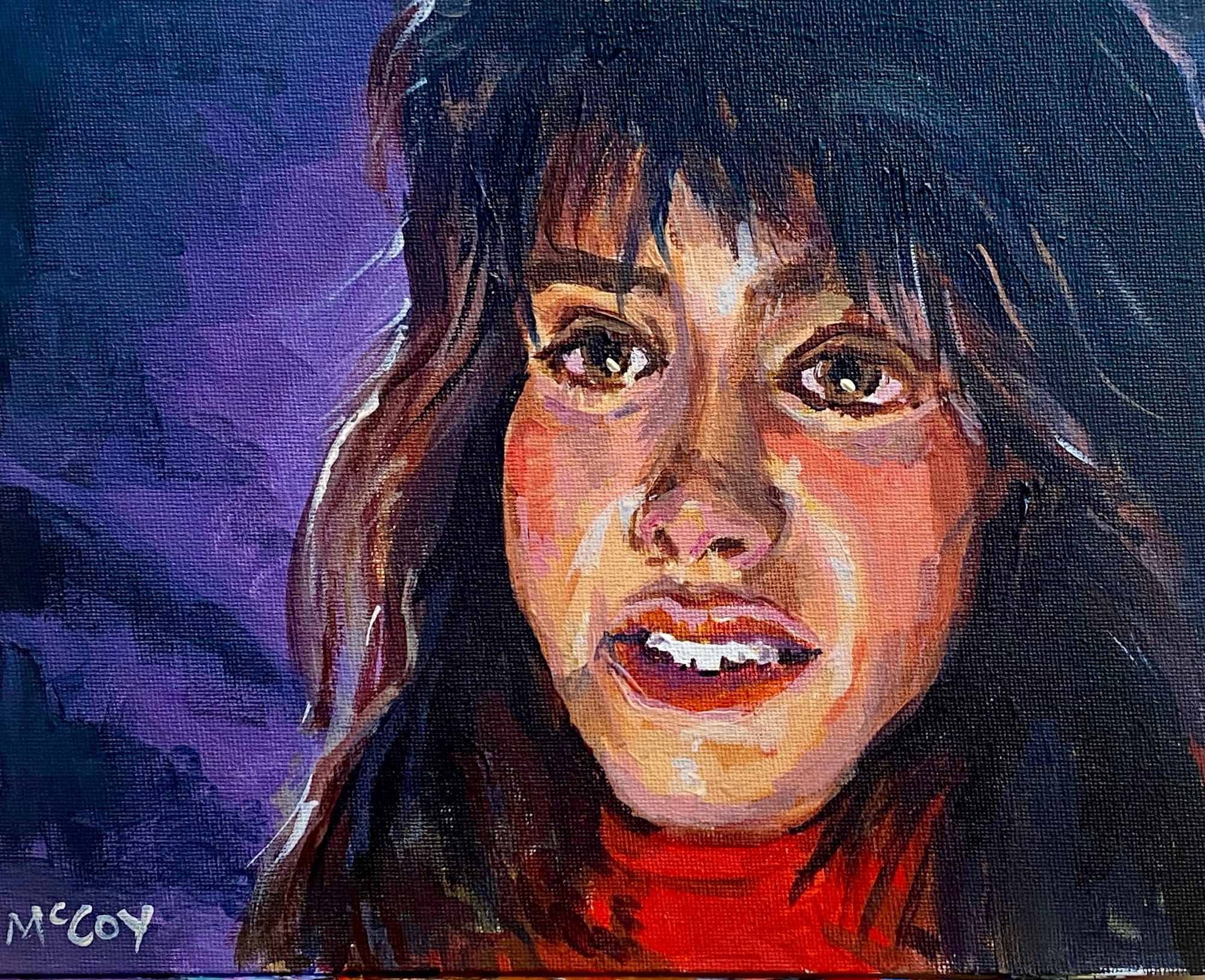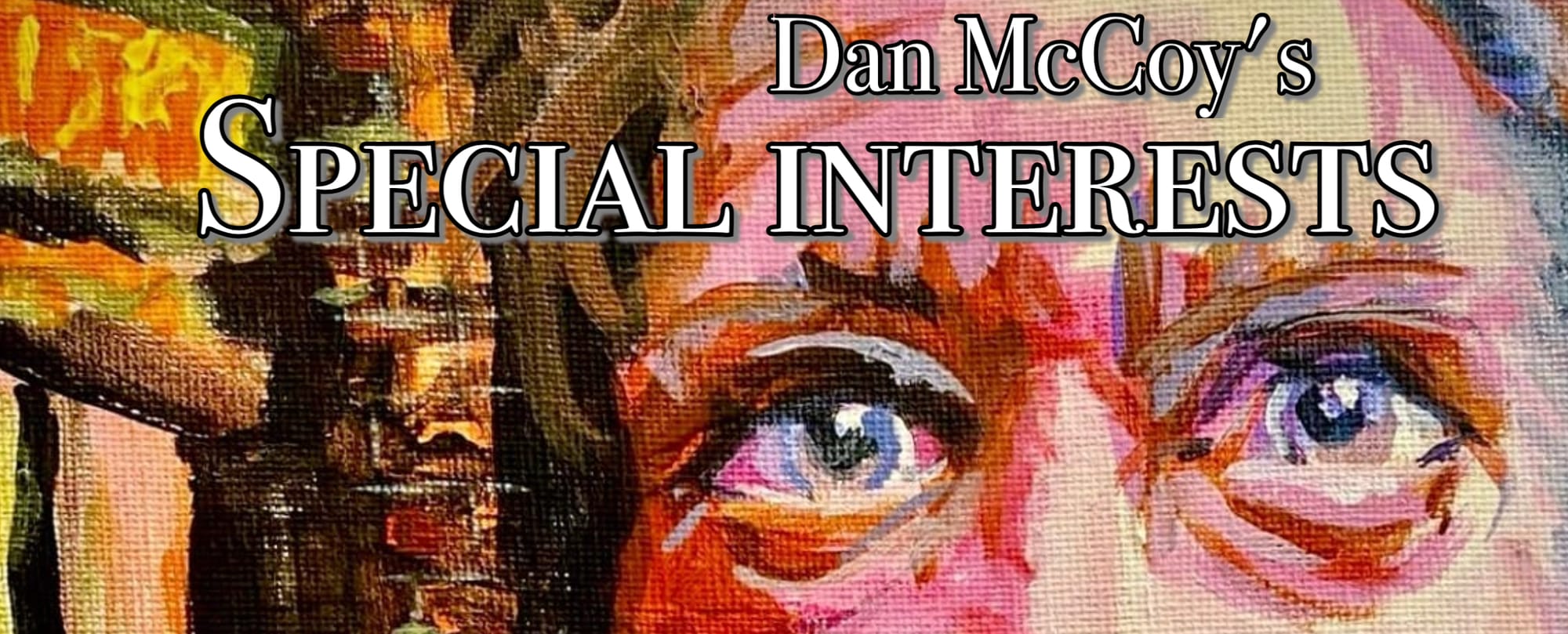Writer Has Thoughts on Writing, Quelle Suprise

I regret to inform you that I'm going to talk about writing.
My condolences are not for you, the reader, but for me, the guy who decided to address this topic – because writing’s a huge part of my life and a huge subject on its own, and also because I’m not confident I can make the hard choices about what to skip and when to allow myself rambling room. This is a problem, because – as an excellent scene in the criminally underrated Wonder Boys correctly states – writing is about choices. Without choices, you’re just typing, and when you’re just typing, you get On the Road. (Burn! Recycled Truman Capote Kerouac burn!)
Plus: who the hell do I think I am to talk about writing? I have a few bona fides, sure, but bona fides don't impress-a me much. Writing is a fantastic profession for someone in the market for a case of imposter syndrome.
Why do writing and confidence not mix?
- If you’re inclined toward negative thinking (guilty), then your accomplishments can be easy to dismiss. I spent 10 years writing for The Daily Show, 4 under Jon Stewart, when it was one of the Emmy-winning-est shows in history, so you’d think that would be enough to slap my inner imposter around a bit… but the truth is, it’s pretty easy to think “Eh, I was one cog in a giant machine, and my words were usually rewritten by someone smarter than me.” Plus, even before Comedy Central’s Paramount overlords trashed the show archives, topical comedy isn’t really something people return to. It ages like gas station sushi. Who’s going to go back and watch me explain rim jobs to Jon Stewart, if the context was 2016’s never-ratified Trans Pacific Partnership, a thing no one’s thought about in 8 years?
- Writing's a career filled with inescapable reminders of everyone far more brilliant than you. If you’re, say, a bank teller, you’re probably able to go through a workday without jealously obsessing over what a whiz Cheryl is at reconciling deposit slips, but if you’re a writer at your desk thinking, “You know what, this essay about Scrooge McDuck has some solid jokes,” it’s pretty easy to look over at your bookshelf and think, “On the other hand, there’s not a ton about cartoon ducks in SHAKESPEARE, you dolt” and then stare into space, questioning the value of your life.
- Writing’s incredibly personal. First you have to have the gall to think that anyone possibly gives a shit about what you have to say, especially in a world with nearly unlimited entertainment options, including that show Riverdale, where there’s a sexy Jughead. Why should anyone possibly care about you? Plus, because it’s so personal, the inevitable cavalcade of rejection really hits home. To paraphrase the aforementioned Shakespeare, “He who rejects my purse rejects the $0.02 streaming residual checks I used to get for The Daily Show before Paramount nuked the archives, but he who rejects my writing rejects ME!” It's easy to jump from “Is my writing worthless?” to “Am I worthless?” Whereas if you had a bad day at the bank, you go home, pour yourself some wine, and think about sexy Jughead.
- Writing’s the rare job that you have even when you don’t have it. Professional writers spend half of their careers (if they’re lucky) writing material they’ll never get paid for. For someone like me, whose self-deprecation is some kind of sick religion, it feels weird to call yourself a writer when you’re not actively drawing a paycheck, even though that’s part of the job. Heck, there are people who call themselves as writers who’ve never seen a slice of cheddar – and they should feel welcome to the title! We all deserve to treat our efforts with respect. It’s just an odd quirk of the job. If someone started writing too much Riverdale fanfic, lost their deposit-reconciling mojo, and got fired, they wouldn’t still call themselves a bank teller. They’d just call themselves Cheryl.
- Guys, do I secretly want to work at a bank? What are the hours?
Anyway, look at that last section. Does it look like I made a lot of choices? I’m still just introducing the topic! And, to be honest, there were like three more callbacks than I originally intended. AM I a writer?
Answer? Yes. Proof? How whiny and insecure I’m being. If I was drunk right now it would be a hat trick.
That said, I’m going to focus up, starting… now. My loving and frustratingly-correct wife recently pointed out that while she loves them, maybe long reads aren’t optimal for newsletters (it’s not just her – if I keep this pace, I’ll burn out pronto). Thus, I’m gonna split my original thoughts on writing in two, and stick only to the stuff on the plate in front of me. This is part one, I have a silly/unrelated palate-cleanser for next time, and then I’ll return for part two. This edition is about the ways other artistic disciplines/pursuits inform writing and part two (in four weeks) will be about craft vs. intuition. Both sides will probably touch on writing with ADHD, and there will probably be other crossover, because I originally imagined it as one longer piece, but… Guiderails! Limitations! Huzzah!
Let’s start (Dan, you’re 900 words in already) with what inspired this edition in the first place – David Lynch.
Blank Check (my favorite podcast other than my own) is currently covering Lynch’s filmography, which inspired me to pull out my copy of Lynch’s “Catching the Big Fish: Meditation, Consciousness, and Creativity.” It’s a book that my friend, comedy writer Frank Lesser, described as “30% filmmaking anecdote, 20% filmmaking advice, and 50% a soft sell from Transcendental Meditation,” and while that’s funny/true, I also think it undervalues the book a bit. Yes, it fits in the vast tradition of half-baked celebrity publishing, where a single anecdote or paragraph can fill an entire chapter, with enough white space left over to write an equally-long book in the margins (Lynch seems to acknowledge this/poke fun at his own inscrutable image with a chapter titled “The Box and the Key” which is comprised of the single sentence “I don’t have a clue what those are”). Even so, I accept scraps and aphorisms from Lynch more readily than any other famous person presenting me with a similarly thin tome.
Part of that is scarcity – Lynch is notoriously reticent to talk about his work, which makes sense for someone whose work would be robbed of significant power if he gave one singular answer about what it all “means.” Thus I’ll take what he’s willing to give me and be happy for it. But also – part of what Lynch gets at in his book is the ineffable, unconscious part of so much of the creative process. It’s a world where studied craft works together with instinct and near-mysticism (steering into PART 2 essay territory! Abort!) so I’m not disappointed by vagaries. They just seem like the natural result of trying to grapple with something, well… vague.
There’s plenty of wisdom to mine from what he is willing to share. Like the ways his background in other media informed his filmmaking – coincidentally similar to MY topic for THIS VERY ESSAY. Lynch began as a painter, and, while in art school, had a kind of vision – the leaves of the plant he was painting seemed to move on the canvas. Lynch was so taken by this that he began to wonder how he might incorporate actual movement into painting. This led to hybrid media experiments like “Six Men Getting Sick,”* an art installation where a projector played an animated loop over sculpted busts, and from that first toe-dip into film it was just a hop, skip, and a jump into movies as his primary medium.
(*Six Men Getting Sick has a 43% of Rotten Tomatoes, btw, which is both all you need to know about the usefulness of RT, and the funniest review-based found comedy since I saw a Letterboxed user complain that Stop Making Sense was just musical performances.)
Even though I could never match his genius, this makes me feel some kinship with Lynch – before writing, my first discernable ability was as a visual artist (you can see some of my work here), and one thing that consistently surprises me about visual art is the way it bolsters my writing. As the former improves, so does the latter – and not just because I’ve had more practice in both. They seem to reinforce one another, intertwined.
Perhaps that’s not surprising. Of course thinking visually helps you, say, describe a scene in prose – and it’s even more useful in a script, where you’re always looking for ways to convey information through image, rather than dialogue. But there are sneakier, process-based ways I find it influences me as well – like teaching me to enjoy process itself.
Loving process was always tough for me, despite my brother John telling me, at a young age, that it was probably the key to improving as an artist – a truth that stuck with me because it seemed so impossible. When I was younger, I wanted to make things because I wanted to have made them. This brings to mind (name drop imminent) the words of my friend/fellow podcaster John Hodgman, which I’ll paraphrase because I’m too lazy to look them up – “A lot of people write books because they want to have written a book. Which is a pretty shitty reason to write a book.”
Why was process hard? Tough to say. A recurring theme of this newsletter is how hard it is to discern cause and effect, in personal psychology. Is a reaction I’m having the “common” one? Is it specific to me because of my experience? Is it somewhat specific to me but common to neurodivergent folk? Is it some version of "all of the above?" Probably the last one, right? Why is that disappointing? Why do I want there to be one “the answer?”
I'll try to give my own "all of the above," and say:
(1) I think it’s pretty common for younger people to be focused on goals, because they’re anxious to make their way in the world and prove their worth, and it’s only when you’re older that you have both the luxury and the wisdom to realize that future rewards will always unknowns, and there’s only the here and now, so you’d better learn to enjoy what you're doing.
(2) it’s easier to enjoy things you do solely for yourself – I returned to drawing during Covid, and realized it was exactly the sort of meditative, flow-state thing I needed for quiet, focus, and a sense of accomplishment. I still post a lot of my work online, because I can’t entirely overcome my constant need for attention (I do work in entertainment after all), but no one’s paying me for it, and that makes all the difference. When I first got hired at The Daily Show, my friend and co-worker Elliott warned me that the aphorism, “Do what you love and you’ll never work a day in your life should really be ‘Do what you love and slowly find yourself alienated from yourself and your art,” and – while I’d take another similar job in a heartbeat – goddamn was that li’l cynic on to something.
And (3) the ADHD thing probably did make me more focused on goals, because some part of me knew that if I didn’t blast through a project fast, I’d inevitably grow too bored to finish. Audrey and I cleaned out our storage closet recently, which involved going through a ton of childhood artwork sent by my parents to get it out of their storage, and revisiting that work was instructive. There was plenty of old stuff I was proud of, even now, but SO MANY ambitious comics projects, abandoned mid-page.
Anyway, enjoying process is huge – these days I write for pleasure as much as for goals. Does a lot of that have to do with reason #2? That I’m no longer writing for someone else, but scripts that suit my own tastes (+self-indulgent navel-gazey newsletters)? Well, sure. But I still think the drawing has something to do with it.
Back to Lynch. I was particularly taken by how often his creative process involves reconfiguring material. Some in a way typical to a lot of writers – he finds a scene or image he can’t get out of his head and manages to incorporate it into his work – but it's the more dramatic reconfigurations that strike me. Mulholland Drive started life as a TV pilot for ABC that was extended and mutated into a feature via an infusion of French (ahhhh the French) cash. It takes a rare genius to take the TV-pilot-to-movie route and end up at #8 on Sight and Sound’s list (Cruel Intentions 2 certainly didn’t manage it). In a related vein, Inland Empire was birthed from a long monologue Lynch wrote for Laura Dern, simply because she wanted to work together again. He liked the result, so he began to add this element and that (including bits from his Rabbits webseries) and a full narrative began to form.
This, to me, is very much a visual arts manner of working. The most obvious analogue is collage, where unrelated elements are combined to create a new work, but for me, it brought to mind painting. (Perhaps just because I was painting a lot when I re-read the book, and it consumed my thoughts anyway. I’ve drawn all my life, but if I’ve ever painted, it’s been an afterthought – watercolors and poster paints as a kid in school. Yet a restless bee got in my bonnet this year, and I took up acrylics. I probably haven't done more than 10 canvases in tota, but I've been pleased to find I have an aptitude for it.)

Lynch’s process reminded me of painting, because – even more so than drawing – painting feels like an act of refinement. You select your color palate. You block out your base in broad strokes. And then layer by layer, you refine, “finding” the picture as you go – emphasizing or deemphasizing elements, adding detail, painting over some things entirely. One valuable lesson to be learned from painting? At some point, your painting is going to look very ugly and you’re going to hate it. You’ll want to throw it into the sun. This is normal. The solution is not to stop, but to keep on. There’s something great in there, and if you don’t find it, you don’t want it to be for lack of effort.
This is a good lesson to take back to writing, especially because I used to hate rewriting. This, despite every writing guru’s cries of “writing IS rewriting,” and me claiming the title of “professional writer." I dealt with my deficiency by learning to write passably well the first time around, and – while that’s a valuable skill – it will only take you so far. In many ways, The Daily Show was an ideal job for an ADHD brain like mine. Every day: different news. Facts were thrown at us fast, and we got about an hour to synthesize them into a script with an arc, a point, and jokes.
And then, for the most part, the script got taken away from us. The head writers, executive producers, and host did the hard work of refining, and making tough choices about what to cut (well, not THAT tough. It’s painful to cut a joke you wrote; the easiest thing in the world to cut someone else’s),
In some ways, this process taught me great lessons, like to not be precious. If you write fifty jokes a day and they’re all expendable, you learn pretty quickly both to not take it personally and that there’s always another joke. In other ways, it did me no favors, because I rarely had to be my own editor. On the contrary – my job was to give options. As many as possible! But via painting I’ve learned the more valuable skill of revision – blocking out the broad strokes, and then refining, refining, refining, always with the knowledge that it’s going to look ugly before it's any good.
More to come…

For earlier posts, check out the archive. In my other life, I’m a podcaster. Listen to my show The Flop House, here. In my other other life, I’m an Emmy-winning comedy writer. If you’re looking to staff, get in touch! And if you love the newsletter, you can always consider tipping me, by enrolling in the paid tier!
